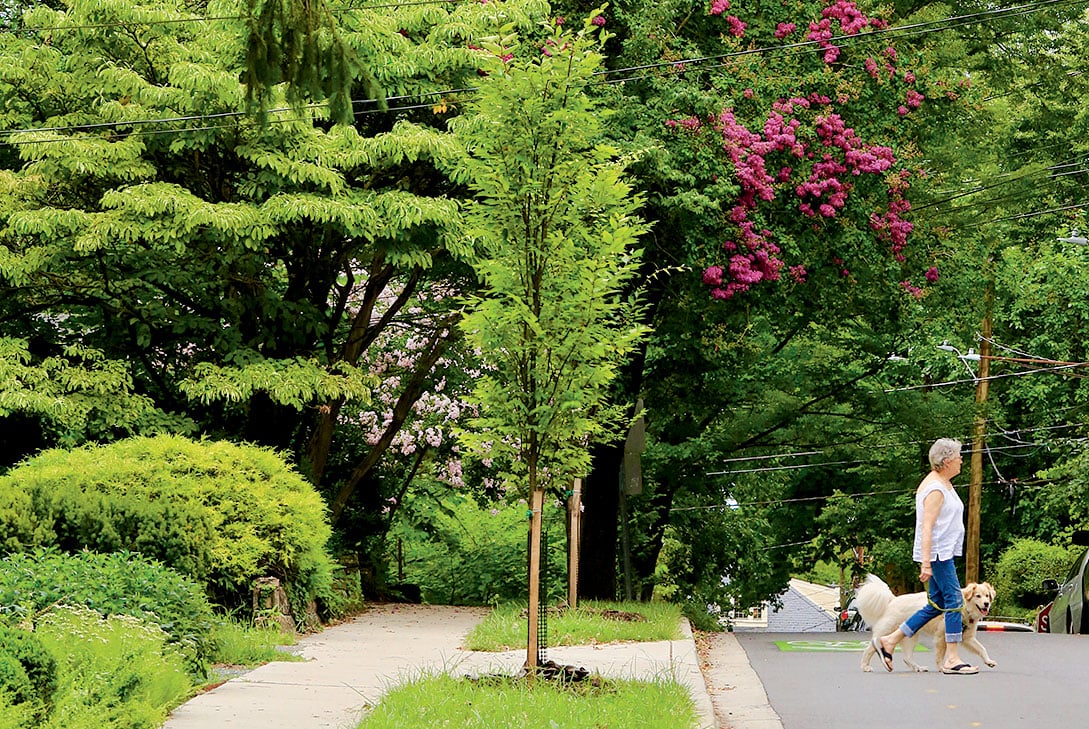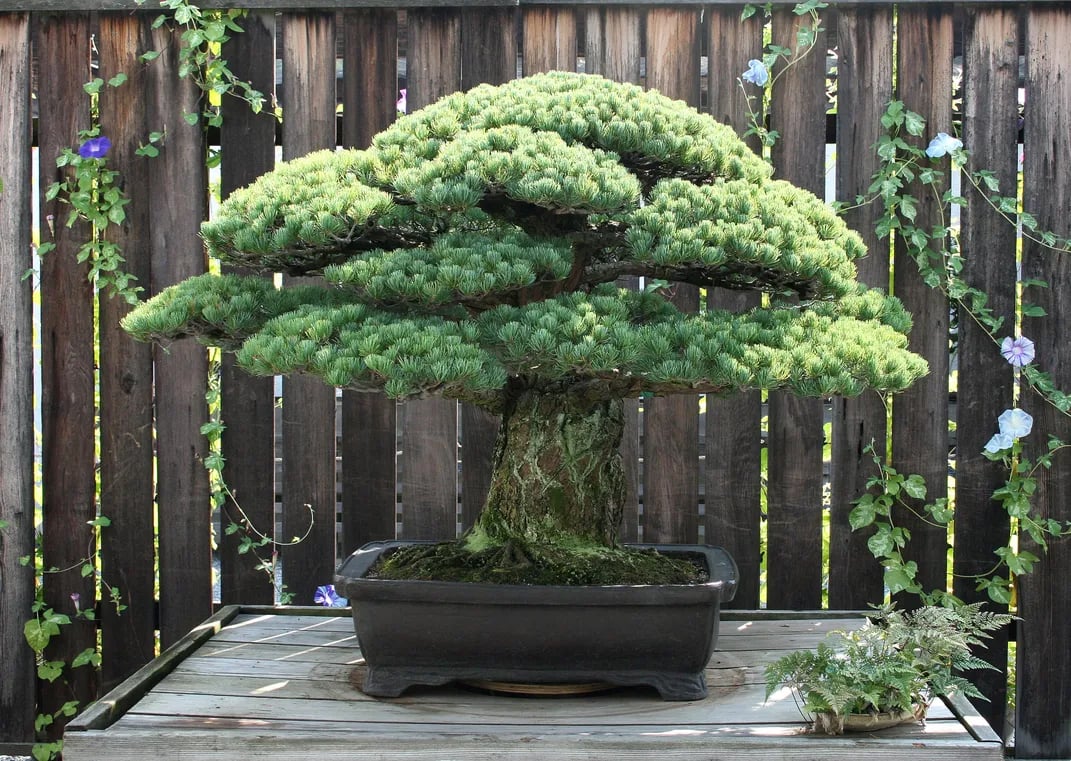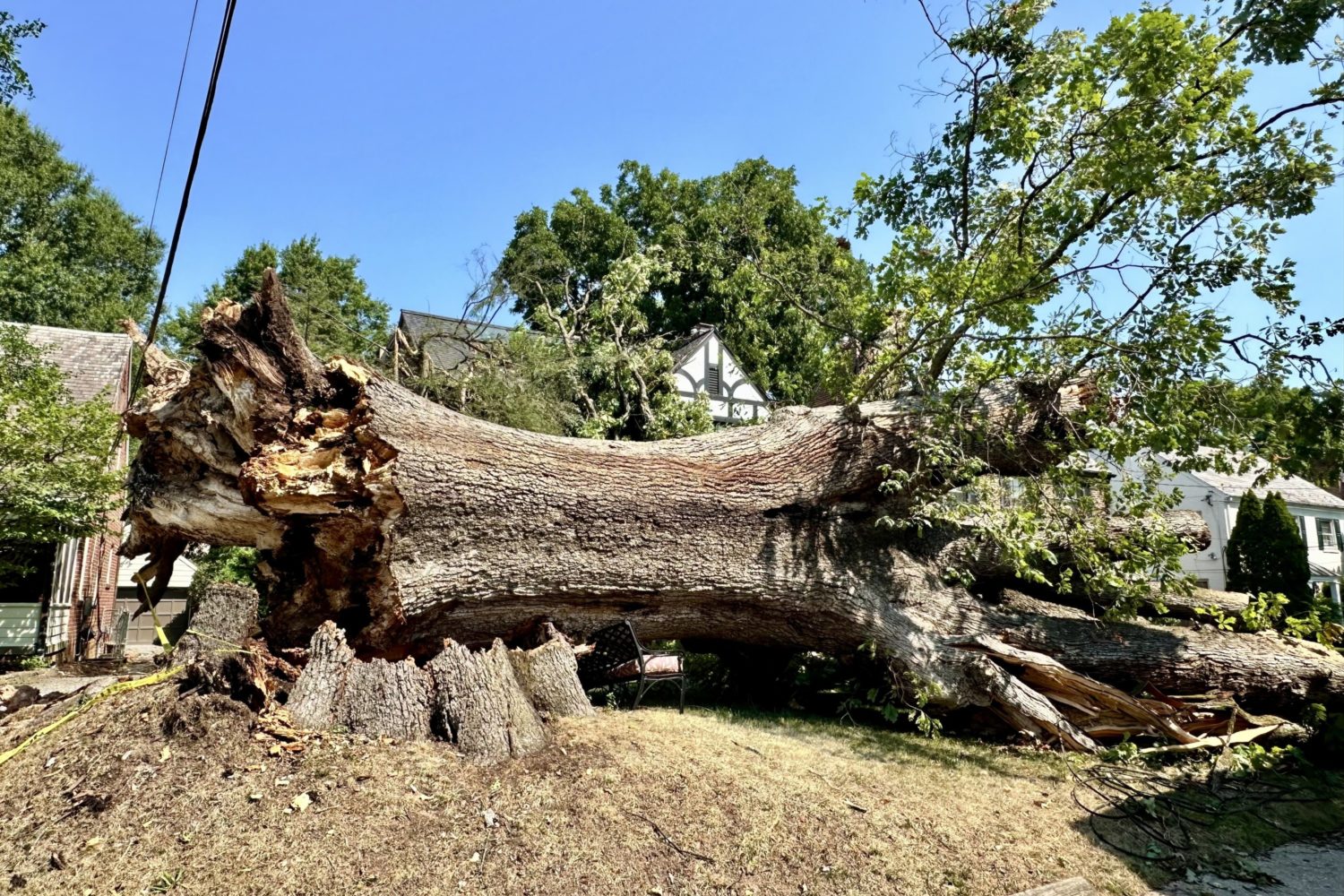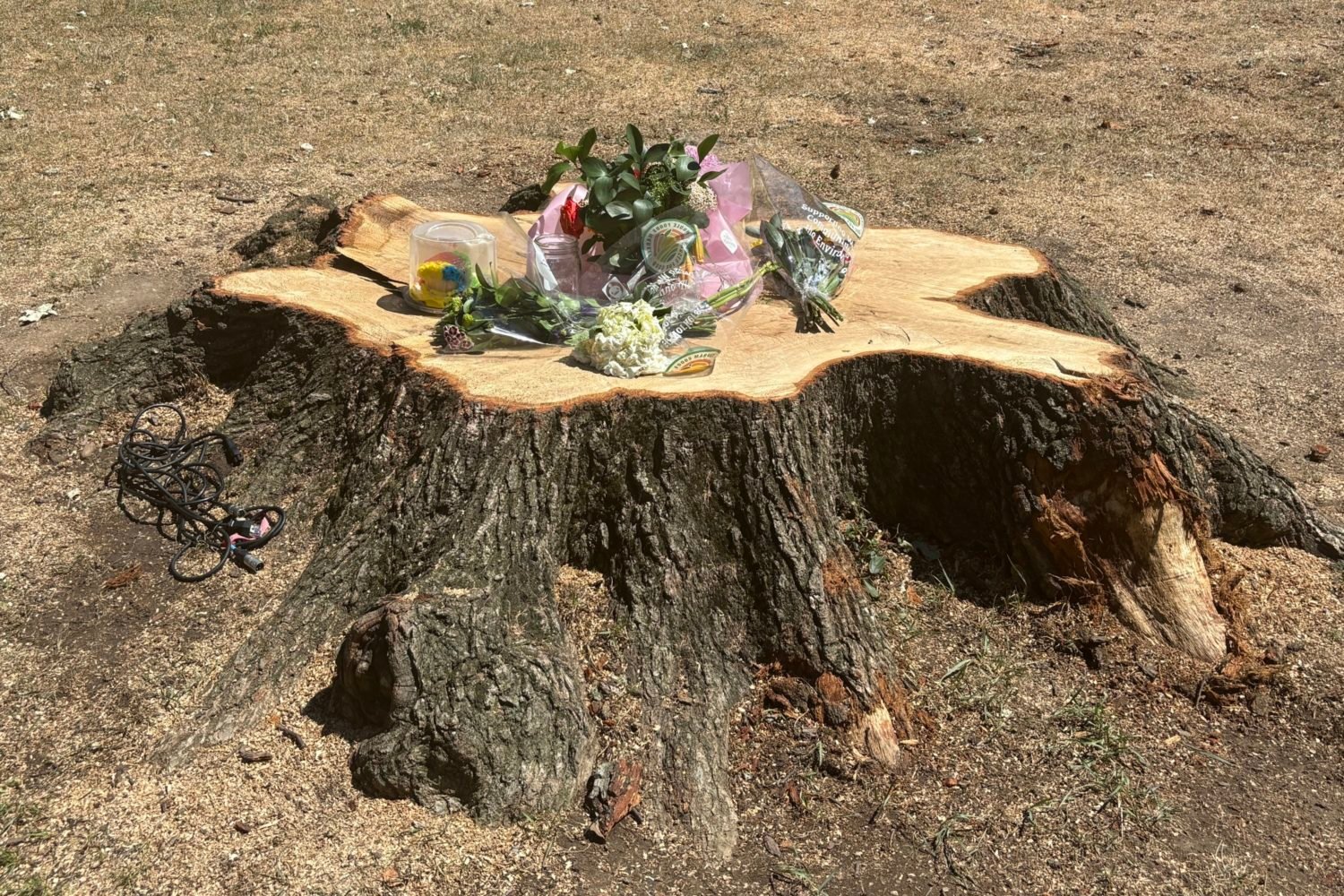A leafy DC suburb has recently found itself in a kerfuffle about its trees. At the root of the tension: Takoma Park’s strict foliage ordinance, which it enacted in 1983.
According to the rules, residents must obtain a permit from the city’s urban forest manager (yes, that’s a real position) before cutting down any tree, even on private property. If a hard-to-win permit is granted, the homeowner must, in the case of a live tree, either replant it or pay a fee that’s used to plant replacement saplings elsewhere in Takoma Park.
Such is life in this tree-hugging community, long a bastion of progressive values and general crunchiness. But lately, some residents have been chafing at the rules. Now the city council is in the process of revising the ordinance so that it will be “more user-friendly, less bureaucratic, and feel a little less punitive,” says council member Kacy Kostiuk.
The man tasked with enforcing the city’s complex processes is urban forest manager Jan van Zutphen, who arrived in 2017. Something of a local Lorax, van Zutphen speaks for the trees—to a greater extent than previous holders of the position, some residents say. To others, however, he’s just doing his job. “People tend to be in favor of certain environmental regulations,” says van Zutphen, who thinks more education and outreach might help locals better understand what he does. “[But people find it] a little harder when it applies to themselves—myself included.”
However, some observers see a deeper issue: friction between longtimers and recent arrivals, many of whom buy old houses in order to fix them up. “They don’t want to build a $400,000 remodel and then have a tree fall on it,” says Eric Saul, an architect who has lived in Takoma Park since 2007. “There’s this divide between people who are trying to make it more practical for today’s living and the older generation that doesn’t want any change.”
Still, the two groups might have more in common than they realize. Washington Post reporter Ben Terris, a relative newcomer, sees it all as part of the area’s quirky charm. The town “has this kind of utopian idealism, and this guy is at the center of that,” Terris says. “There are going to be people who get frustrated, but if they step back, they’ll realize, ‘Oh, this is why I like Takoma Park.’ ”
This article appears in the October 2019 issue of Washingtonian.


















